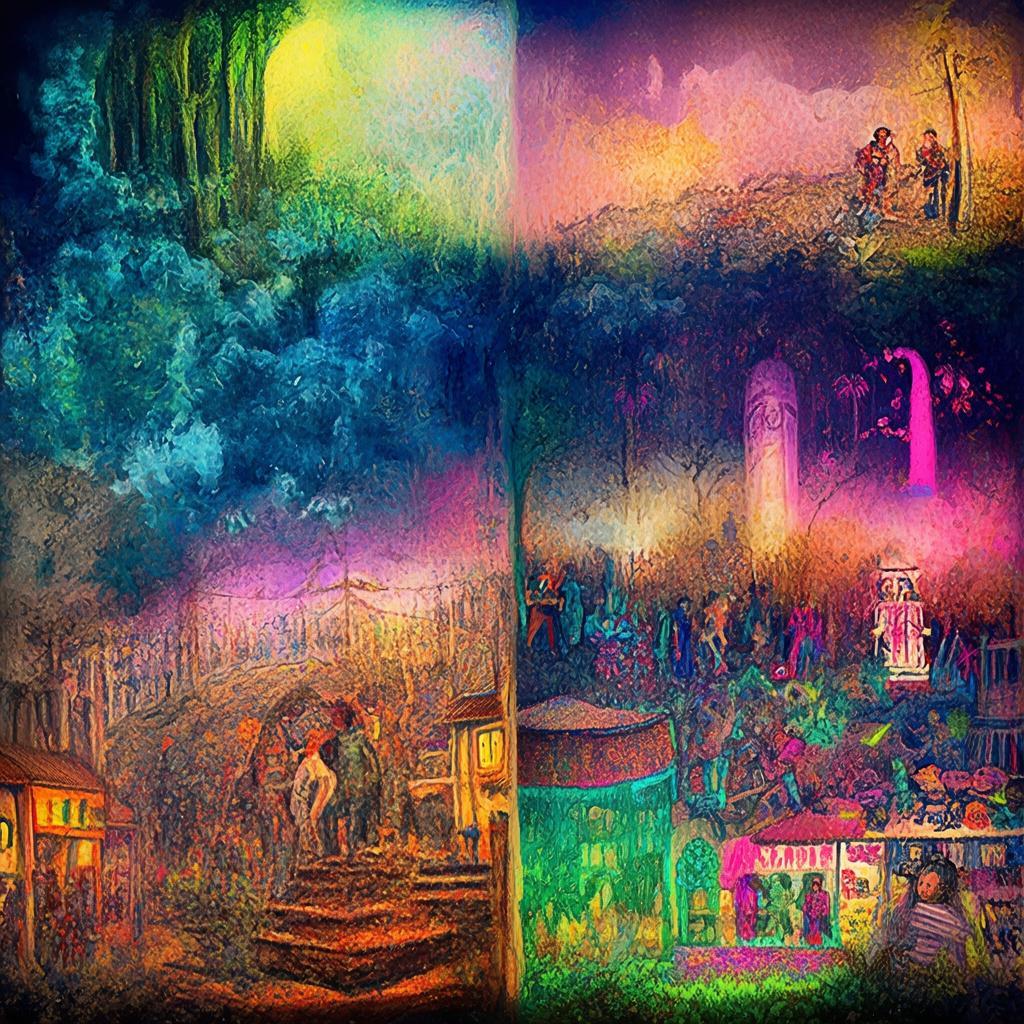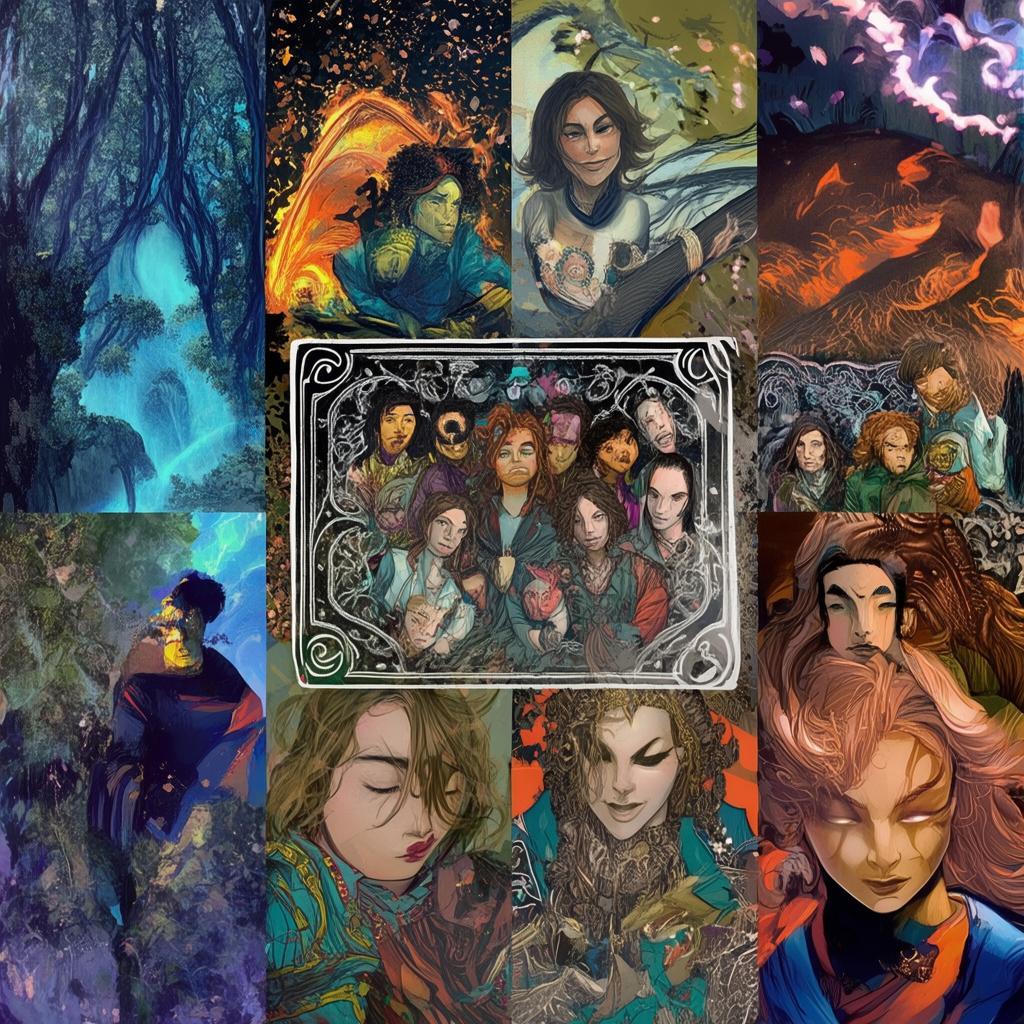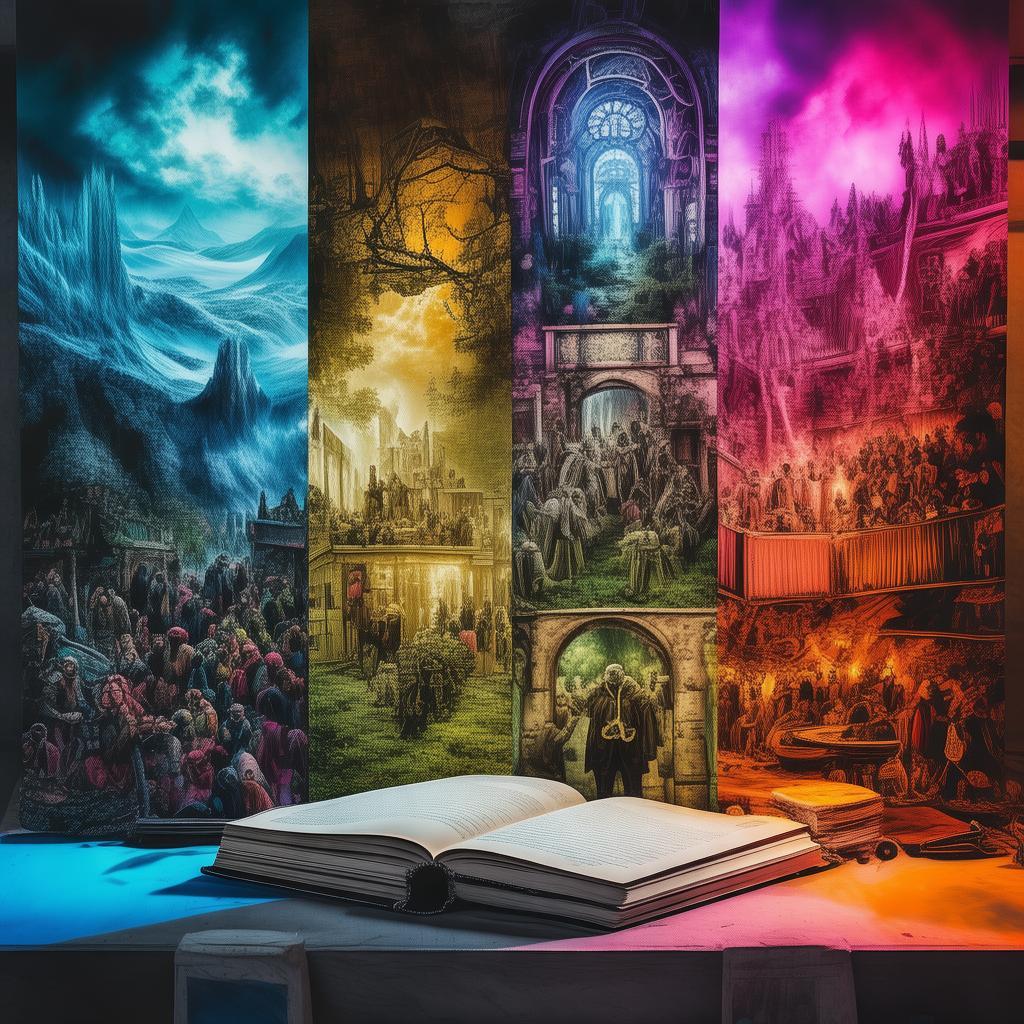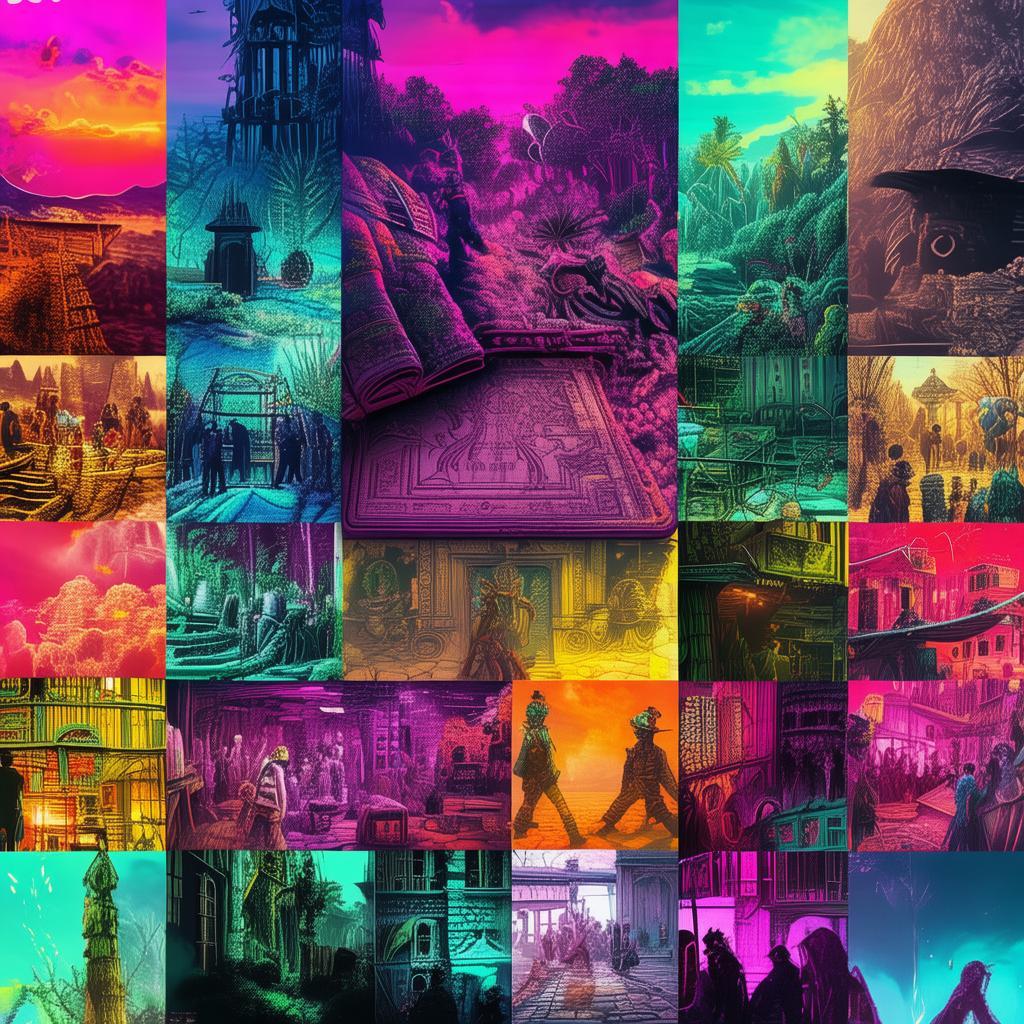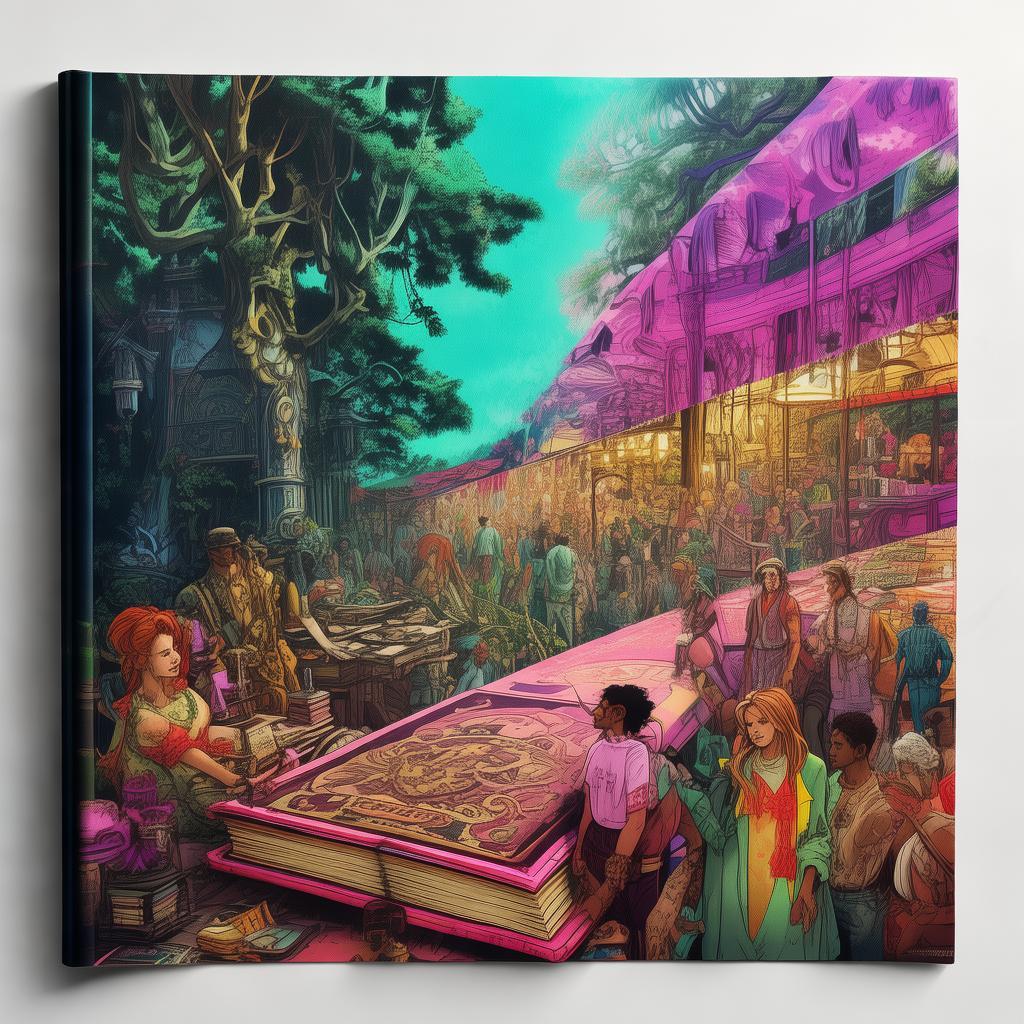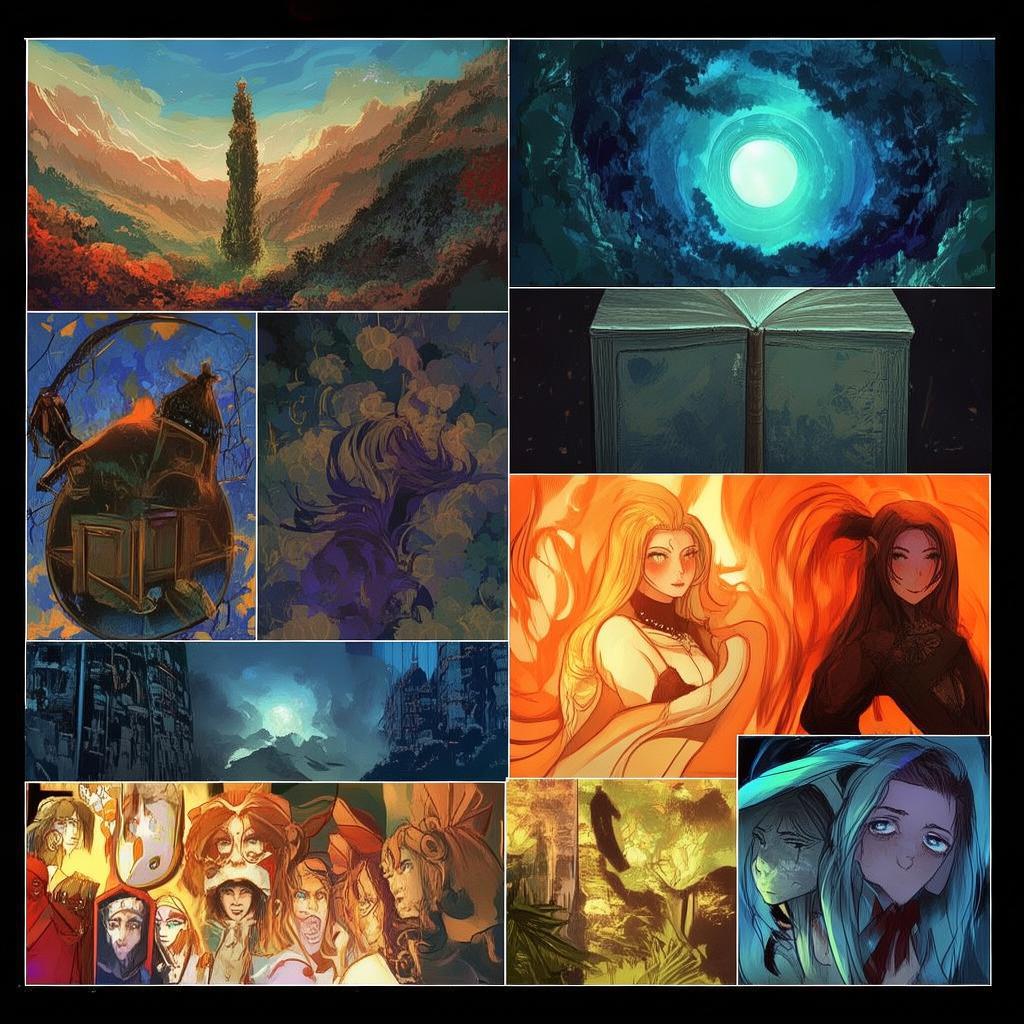The Cow Who Found the Lost Poem
In the heart of the verdant countryside, where the rolling hills whispered secrets to the wind, there was a quaint village that had been shrouded in mystery for generations. The villagers spoke of a poem, an ancient piece of verse that had been lost to time, hidden away in the depths of the forest that bordered their village. The poem was said to hold the key to the village's prosperity and peace, but it had vanished without a trace.
Among the villagers was a cow named Daisy. She wasn't just any cow; she was the beloved pet of young Emily, the village's librarian. Emily had spent countless hours in the library, studying the ancient tomes that lined the shelves, and she was convinced that the poem was real. She often spoke of it with a mixture of awe and longing, and Daisy, with her keen sense of curiosity, had overheard more than her fair share of these tales.
One crisp autumn morning, as the sun painted the sky with hues of orange and red, Emily found Daisy in the library, her nose pressed against the glass of a display case that held a tattered, leather-bound book. The book was titled "The Chronicles of the Lost Poem," and it was the only clue Emily had to the poem's whereabouts.
"Emily, look what I found," Daisy said, her voice a low, contented moo. "I think this book might lead us to the poem."
Emily's eyes widened with excitement. "You think so? That's incredible, Daisy! Let's go find it!"
With that, Emily and Daisy set off on a journey that would change their lives forever. They followed the trail of clues that the book had left behind, leading them through the dense forest, past ancient stone markers, and into the heart of a hidden glade.
As they ventured deeper into the forest, the air grew cooler, and the trees seemed to close in around them. The path was narrow and winding, and the shadows beneath the canopy seemed to whisper secrets of the past. Emily's heart raced with a mix of fear and anticipation, but Daisy's calm presence was a reassurance that they were on the right track.
After what felt like hours, they stumbled upon a clearing bathed in the soft glow of moonlight. In the center of the clearing stood an ancient oak tree, its gnarled branches stretching towards the heavens. At the base of the tree, half-buried in the earth, was a small, ornate box. Emily's fingers trembled as she reached down to pull it out.
The box was locked, and the key was a small, intricately carved piece of wood that seemed to fit perfectly into the lock. Emily inserted the key, and with a click, the box opened to reveal a scroll of parchment. She unrolled it, and the words began to take shape in the moonlight.
As she read the poem aloud, the forest seemed to come alive. The trees rustled, the wind whispered, and the air was filled with a sense of wonder. The poem spoke of love, of loss, and of the enduring strength of the human spirit. It was a testament to the village's history and the lives of those who had come before.
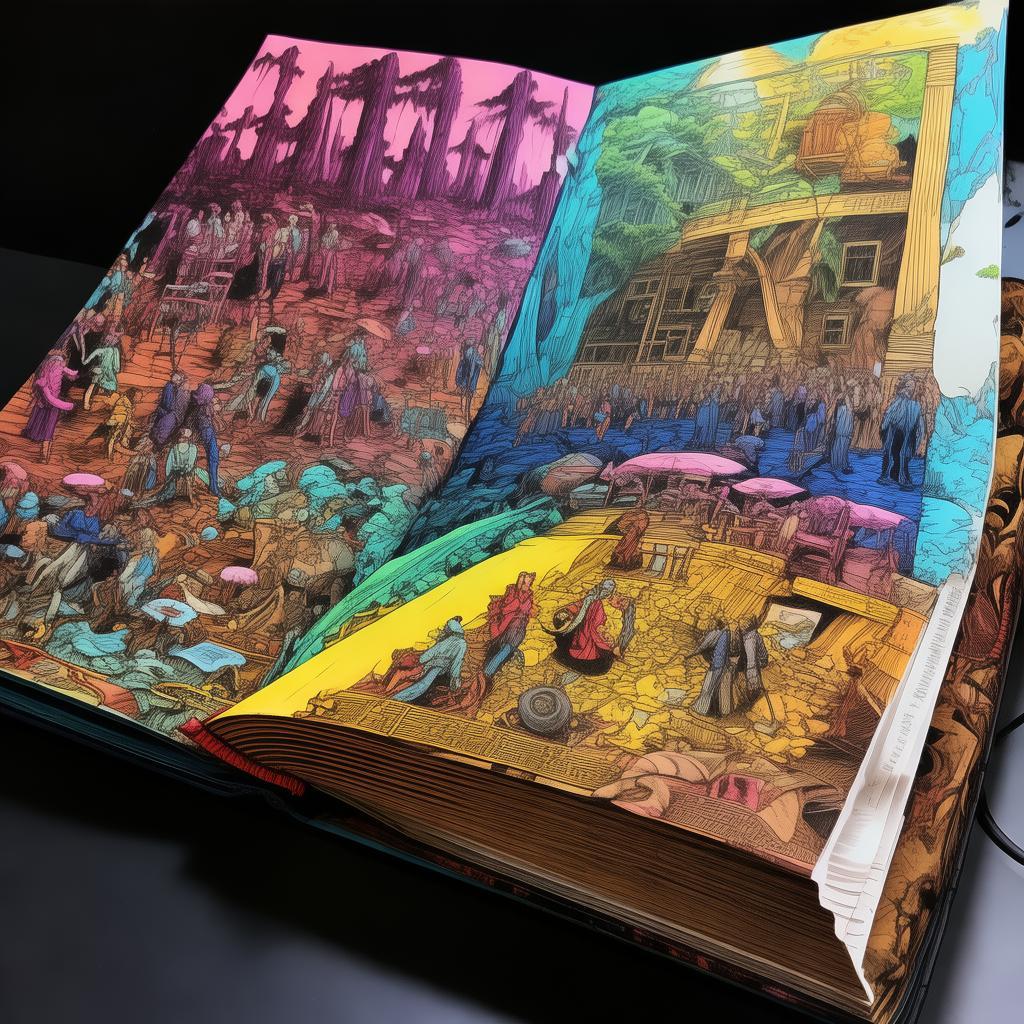
The villagers gathered around, their eyes wide with amazement. Emily and Daisy had found the lost poem, and it had brought them all together in a way they had never imagined.
But the journey was far from over. The poem had revealed a secret that had been hidden for centuries—a secret that could either unite the village or tear it apart. It was a secret that would test the bonds of friendship, loyalty, and love.
As the story unfolded, the villagers faced their own personal challenges and discovered the power of the poem to heal old wounds and bring them closer together. Emily and Daisy's bond grew stronger, and they realized that the true treasure of the poem was the journey they had taken together.
In the end, the poem was more than just a piece of verse; it was a symbol of hope, resilience, and the enduring power of community. The village was forever changed by the discovery, and Emily and Daisy's adventure became a legend that would be told for generations to come.
The cow who found the lost poem had not only uncovered a piece of history but had also sparked a movement of unity and understanding. The villagers learned that sometimes, the greatest treasures are not found in the most obvious places, but in the unexpected paths we choose to follow. And in the heart of the countryside, where the hills rolled and the wind sang, the spirit of the poem lived on, reminding all who heard of its message of love and hope.
✨ Original Statement ✨
All articles published on this website (including but not limited to text, images, videos, and other content) are original or authorized for reposting and are protected by relevant laws. Without the explicit written permission of this website, no individual or organization may copy, modify, repost, or use the content for commercial purposes.
If you need to quote or cooperate, please contact this site for authorization. We reserve the right to pursue legal responsibility for any unauthorized use.
Hereby declared.
